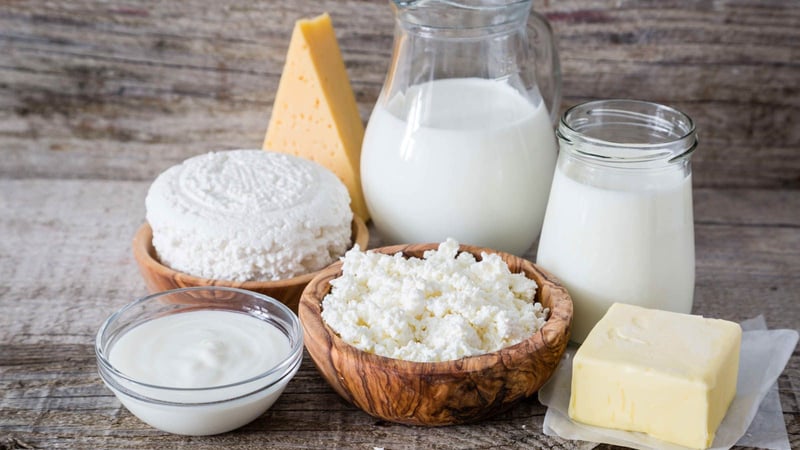
If your breastfed baby cries inconsolably for several hours a day, he could have colic. Babies are labeled as having colic if they cry for more than 3 hours a day, at least 3 times a week, and this crying lasts for more than 3 weeks. Doctors aren’t really sure what causes colic, but they think that colicky babies are just more sensitive. Their digestive systems are immature and their nervous systems aren’t used to the new world around them. They may need more attention while they adjust to life outside the womb and get used to all their new bodily functions.
Colic is sometimes a catch-all diagnosis for babies that are fussy and cry a lot. There are a few things that can be mistaken for colic in breastfed babies because they cause the same symptoms. These include foremilk-hindmilk imbalance, overactive letdown, and allergies to something in their mother’s diet. Dairy is the most common food allergy for babies. Some babies are very sensitive to the proteins found in cow’s milk.

Dairy Allergy Symptoms
Some symptoms your baby might have if he is sensitive to dairy are:
- Gassiness, gas pain, or abdominal discomfort
- Crying, fussiness, or colic-like symptoms
- Green stools, mucus stools, or stools with blood in them
- Diarrhea or constipation
- Spitting up or vomiting
- Coughing, congestion, or cold-like symptoms
- Skin rashes
- Eczema
- Diaper rash
Dairy Allergy or Lactose Intolerance?
When people think of milk allergies they often think that an allergy is the same thing as lactose intolerance. People with lactose intolerance have trouble digesting lactose, a type of sugar found in milk. Lactose is in all milk, including human milk. Lactose intolerance occurs when a person doesn’t produce enough lactase, the enzyme that breaks down lactose.
Babies’ bodies are designed to drink milk. Breast milk contains about 7 percent lactose. Lactose is a carbohydrate (sugar) that your baby’s body uses for energy. About 40 percent of your baby’s caloric needs come from the lactose in your breast milk. A lactase deficiency is unusual in infants. Lactase production decreases after the age of 2 or 3, when babies no longer need to digest milk. This is why most people do not develop lactose intolerance symptoms until they are adults.
Sometimes a baby will have symptoms of a lactose intolerance because he is taking in more lactose (from mom’s breast milk) than his body can digest, but this is not related to a mom’s dietary intake of lactose. This can happen when there is a foremilk hindmilk imbalance or if mom has an oversupply of breast milk. Mom’s intake of dairy products does not affect the amount of lactose in her breast milk.
Elimination Diets for Breastfeeding Moms
One of the easiest ways to tell if your baby is sensitive to dairy is to eliminate it from your diet. There are two approaches you can take when trying to see if your baby has a food allergy. Some moms will use a total elimination diet like the one recommended by Dr. Sears. This will eliminate most of the common culprits for food allergies from your diet. Then you can gradually add foods back to your diet and see how your baby responds. Another approach is a dairy elimination diet. Since dairy is the most common food allergy, this may be easier than trying to do away with all potential allergens from your diet. It is easier to follow and if your baby’s symptoms go away from cutting out dairy, this may be all that is necessary. It may take a few weeks to get dairy completely out of your system, but after a couple weeks you should start to see improvement in your baby if dairy is the problem. If you aren’t sure, you can try adding dairy back in and see how your baby responds.
Most babies outgrow milk allergies once their digestive system is a little more mature. You can try reintroducing dairy once your baby is around six months and see how he responds. If he is still having problems with it, try again when he is around a year old. By three, most children will have outgrown their sensitivity to dairy.

